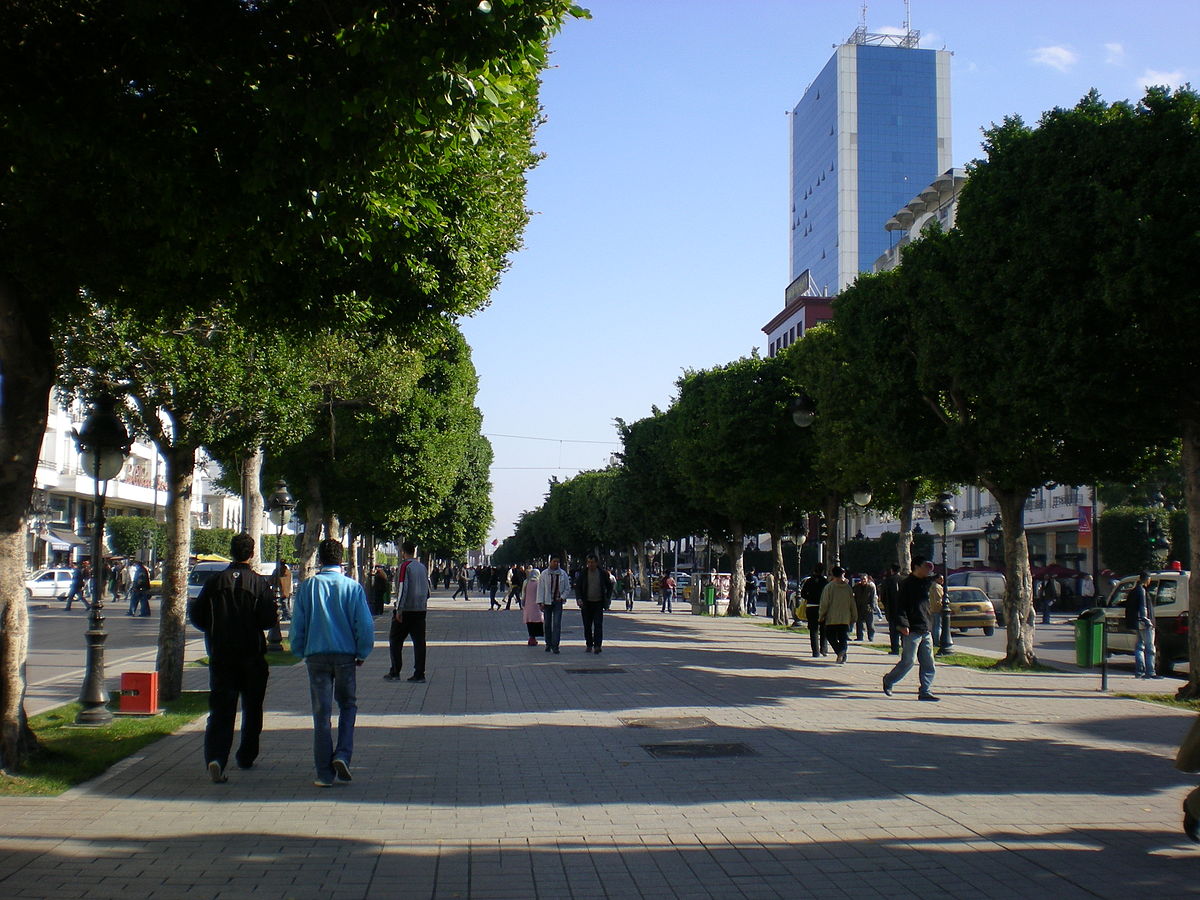On 17 December 2010, Mohamed Bouazizi, a young itinerant greengrocer, set himself on fire in front of the headquarters of the Governorate of Sidi Bouzid. A highly symbolic sign of despair of a citizen, who has become an icon of the precariousness and marginalization of the Tunisian youth, facing a regime which had been in place for 23 years and in the grip of an authoritarian drift.
Following this tragic act, popular uprisings broke out across the whole country, denouncing the growing inequalities between the social classes and between interior and coastal regions. These protest movements, putting forward purely socio-economic demands for dignity and decent jobs, were gradually rallied by political protests, advocating fundamental freedoms, respect for human rights and democratic principles, and rejecting all forms of dictatorship and censorship. These movements led, on 14 January 2011, to the escape of President Ben Ali, then in power since 1987, and to the end of the authoritarian regime.
Ten years later, what is the outcome of the Tunisian Revolution? Can we still speak of the Arab Spring or the Jasmine Revolution, to use the West's qualifiers? Can the Revolution be considered to have met Tunisians' expectations in terms of freedoms, equal opportunities and inclusion? The answer should be nuanced.
While Tunisia's political and democratic transition went relatively smoothly, with the successful organization of the 2011, 2014, 2018 and 2019 elections, the same cannot be said of the economic transition. Despite relatively strong macroeconomic indicators, Tunisia was already suffering from structural difficulties before 2010: the slowdown in economic growth, especially since the global crisis of 2008, the rise of unemployment, in particular that of young graduates (30% against a national average of approximately 15%), and the reluctance of the authorities to undertake the necessary socio-economic reforms. By the of 2010, people were fed up.
However, the Revolution - and the political, security and social instability it brought about – also worsened Tunisia's economic and social situation. In addition to the structural factors in place before 2011, there are cyclical factors linked to the unrest, strikes and protest movements, political assassinations in 2013 and terrorist attacks in 2015, persistent political and governmental instability, and to top it all, the Covid-19 crisis.
The average annual economic growth between 2011 and 2019 was 1.8% compared to 4.2% between 2000 and 2010. In 2020, Tunisia expects a double-digit recession due to Covid-19, given the decline of economic activity of -2.1%, - 21.7% and - 6% respectively in the 1st, 2nd and 3rd quarters. Precarity is accentuated with the high cost of living and the growing difficulties of accessing decent jobs. In 2020, nearly half a million people risked falling below the poverty line, according to a simulation of Covid-19 impact on the Tunisian economy, published by the United Nations Development Programme (UNDP) in Tunisia in June 2020.
The social climate has grown tense with the proliferation of acts of despair, protests and blockades of production sites, with a definite negative impact on the economic activity and the State resources. Trust is also undermined by the perceptions of corruption and perennial tense relations with State officials. Indeed, a deep social malaise prevails.
The government must confront that dire situation with weakened resources, due to the public finance crisis, which has persisted, or even worsened, over the past 10 years. The size of the budget deficit and public debt, estimated at approximately 90% of GDP by the end of 2020, considerably reduced the government’s fiscal space and its ability to implement a social programme capable of supporting the most vulnerable populations.
Despite this rather bleak, maybe even alarmist, outlook, should one denigrate this "Tunisian democratic exception"? Obviously no! The democratic process is not a long quiet river. It has a certain cost, borne by the present generation, and should help shape a better future for all Tunisians. What paradigm shift would it take to continue believing in the Revolution and the democracy it brought about? For it is certain that marginalization, exclusion, and poverty are potential breeding grounds for populism and violent extremism and can therefore weaken the foundations of any new democratic project.
In recent years, several innovative legislative initiatives have emerged, such as the Start-up Act, the Social and Solidarity Economy law, and the Crowdfunding law. All these initiatives focus on the promotion of decent work, entrepreneurship, inclusion and solidarity. These could be the ingredients of a new model of sustainable socio-economic development, more inclusive and human-centred, and more concerned with the environment.
Ten years ago, the revolutionary fervour in Tunisia inspired millions of women and men in the region who dreamed of another democratic tomorrow. The now eponymous slogan “Get out!”, signalling the rejection of dictatorship, has travelled around the world. Today in the region, Tunisians are perhaps closest to turning their dream of democracy into reality. For this to happen, an economic transition, an inclusive and sustainable development project, political courage and citizens’ support are needed. So is the audacity of an ambitious vision.
*Translated and adapted from the original article, in French, published by Jeune Afrique, 14 January, 2021

 Locations
Locations

